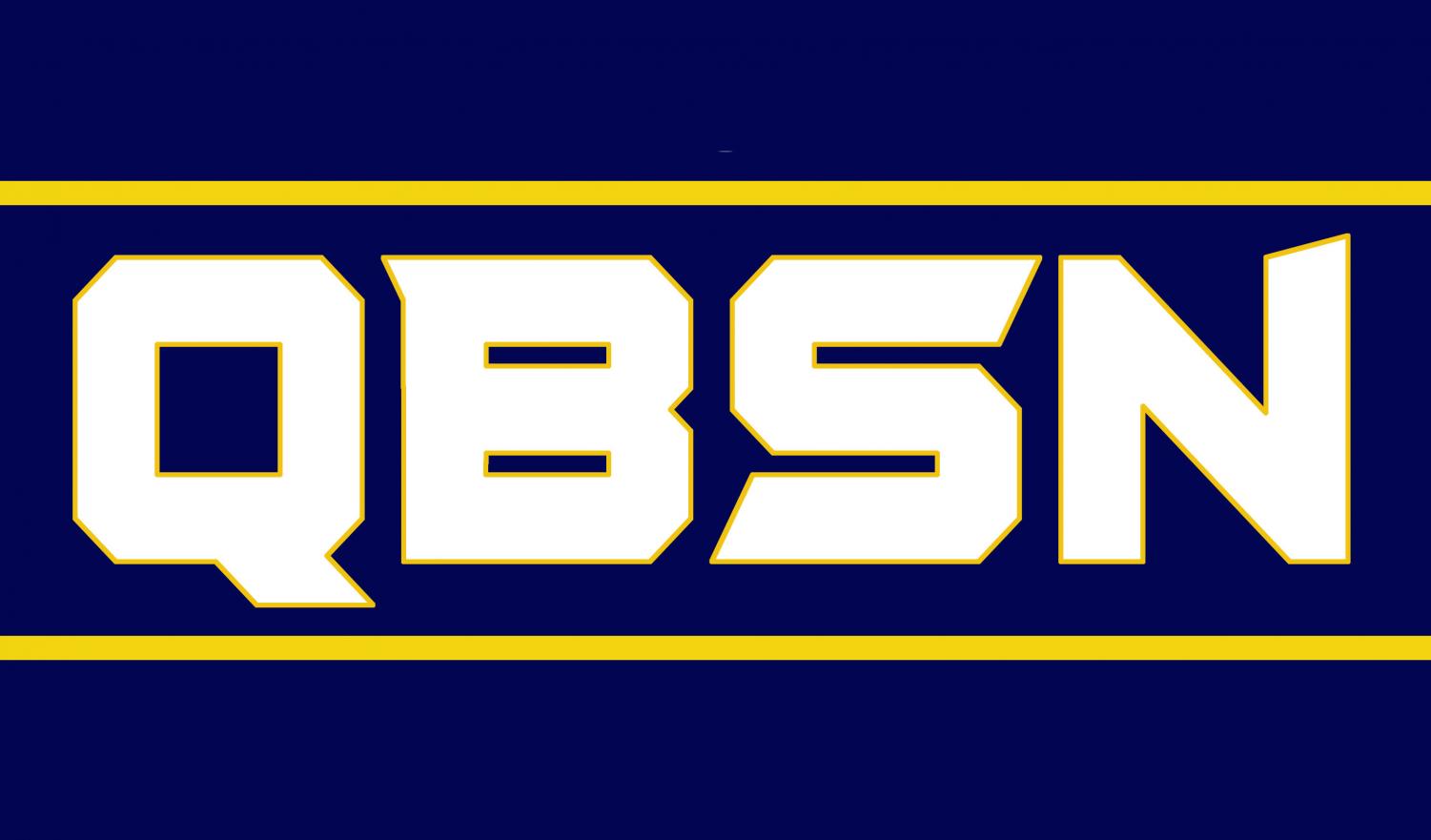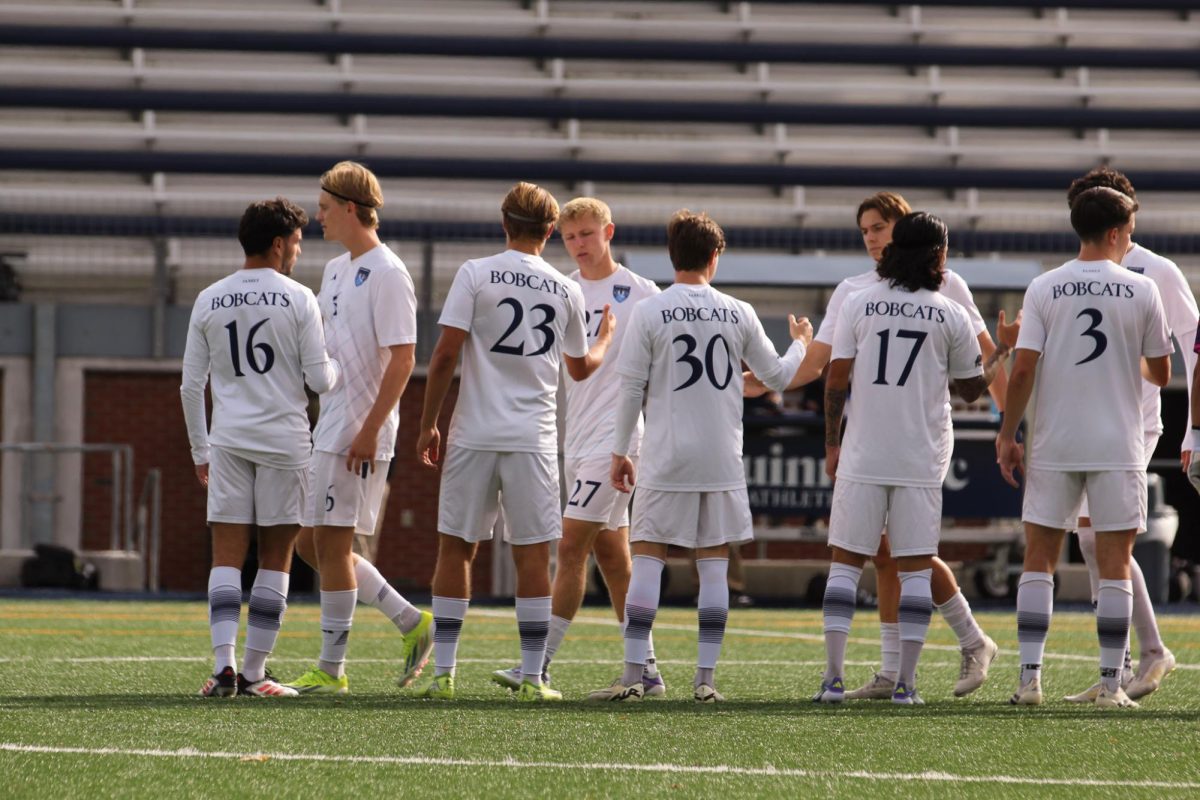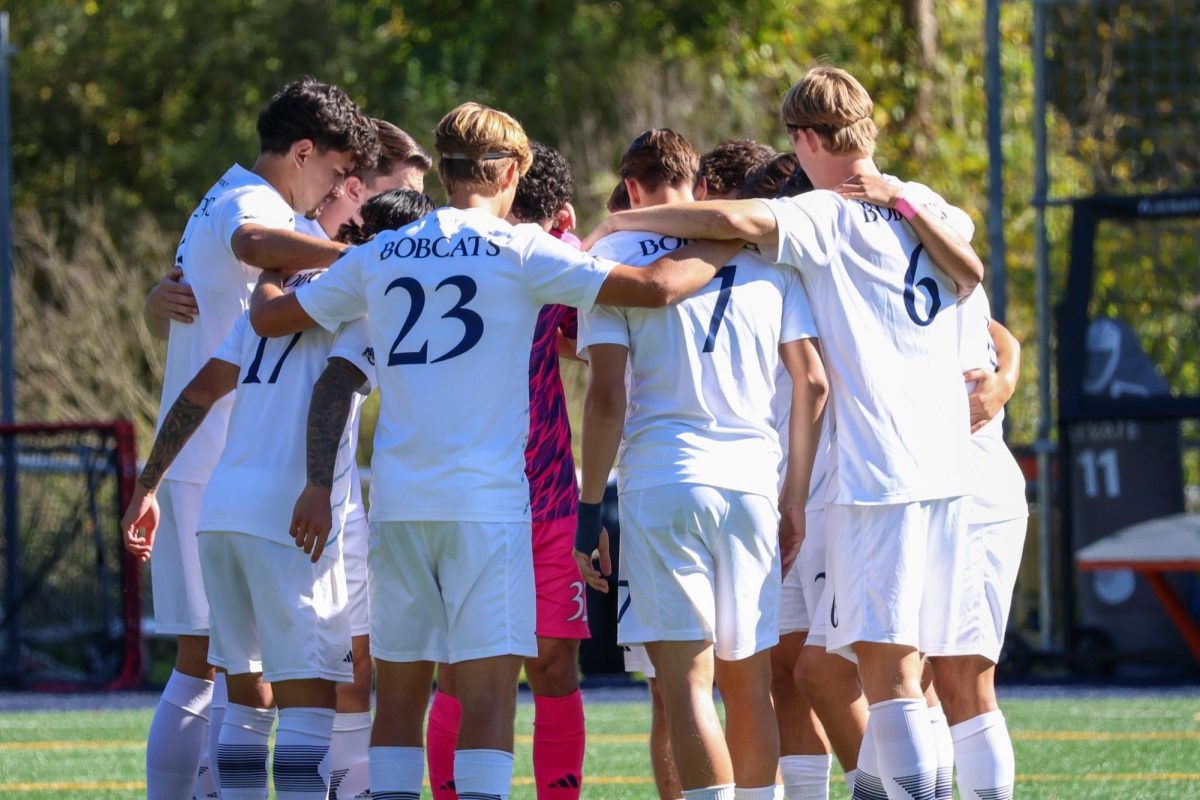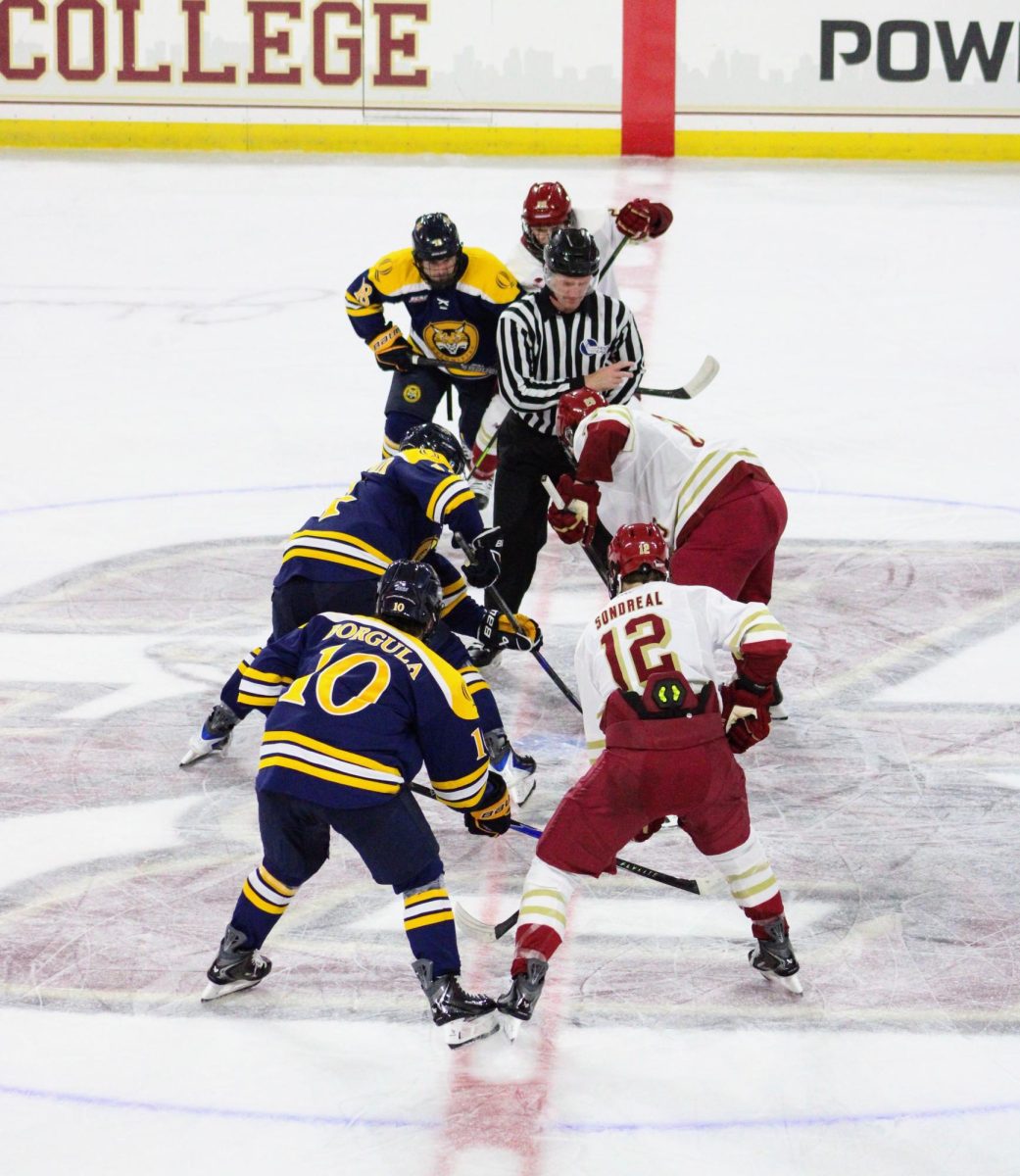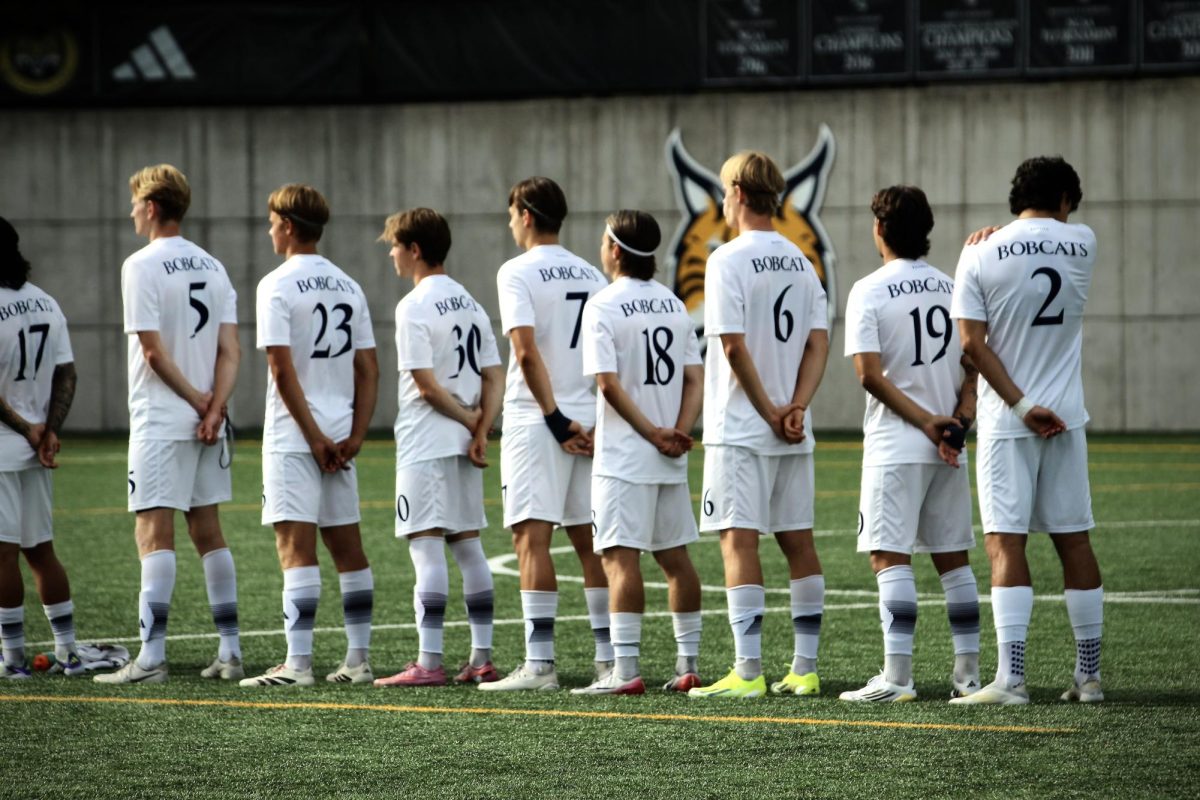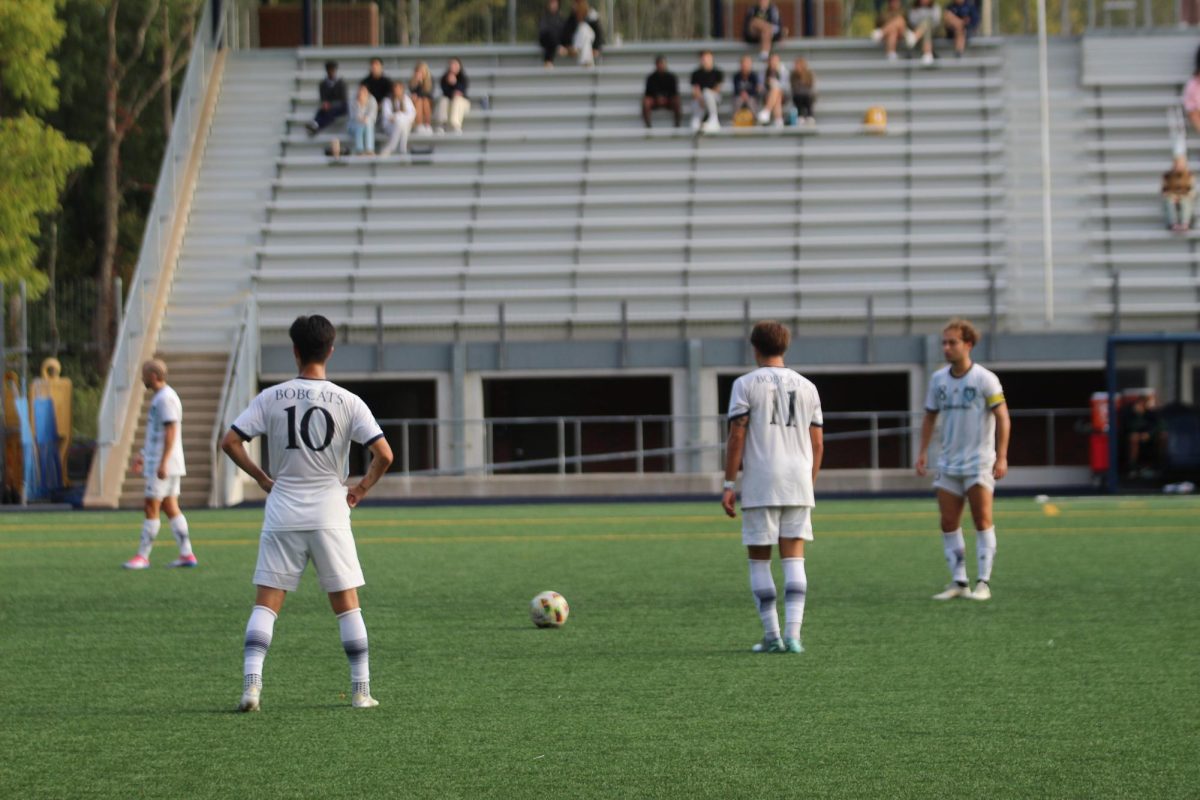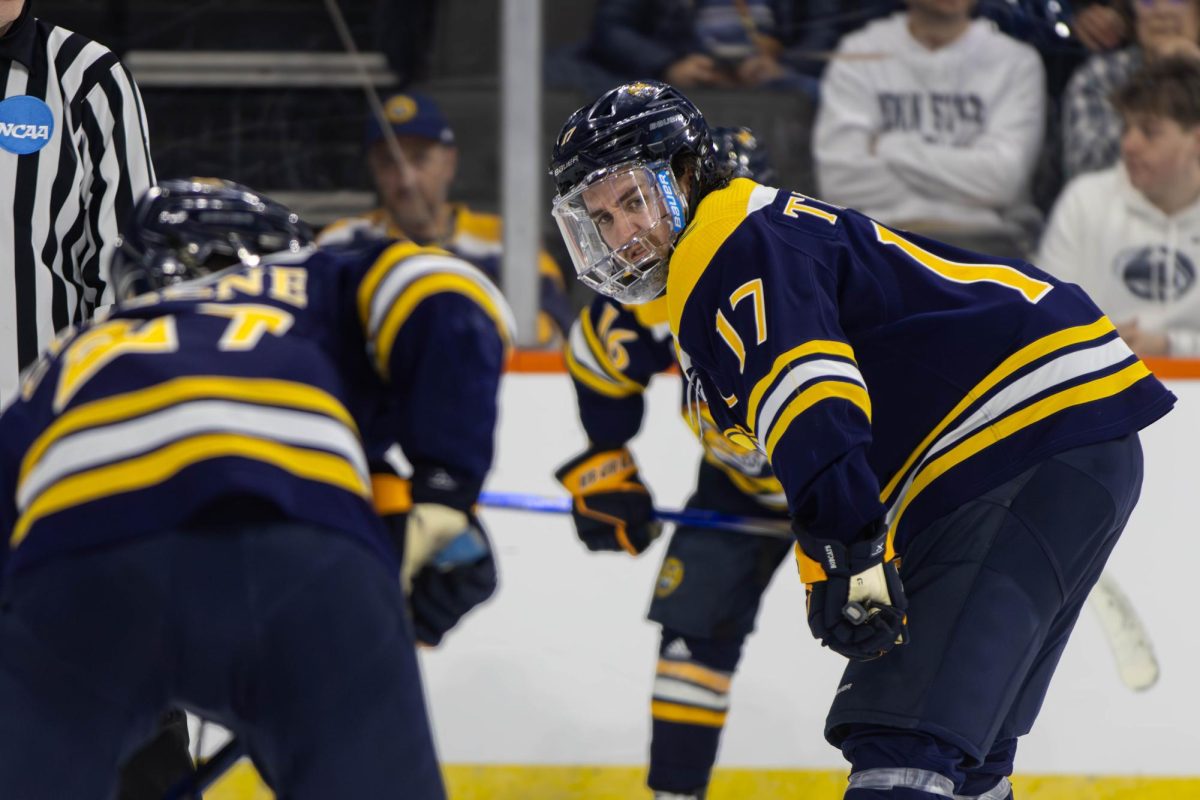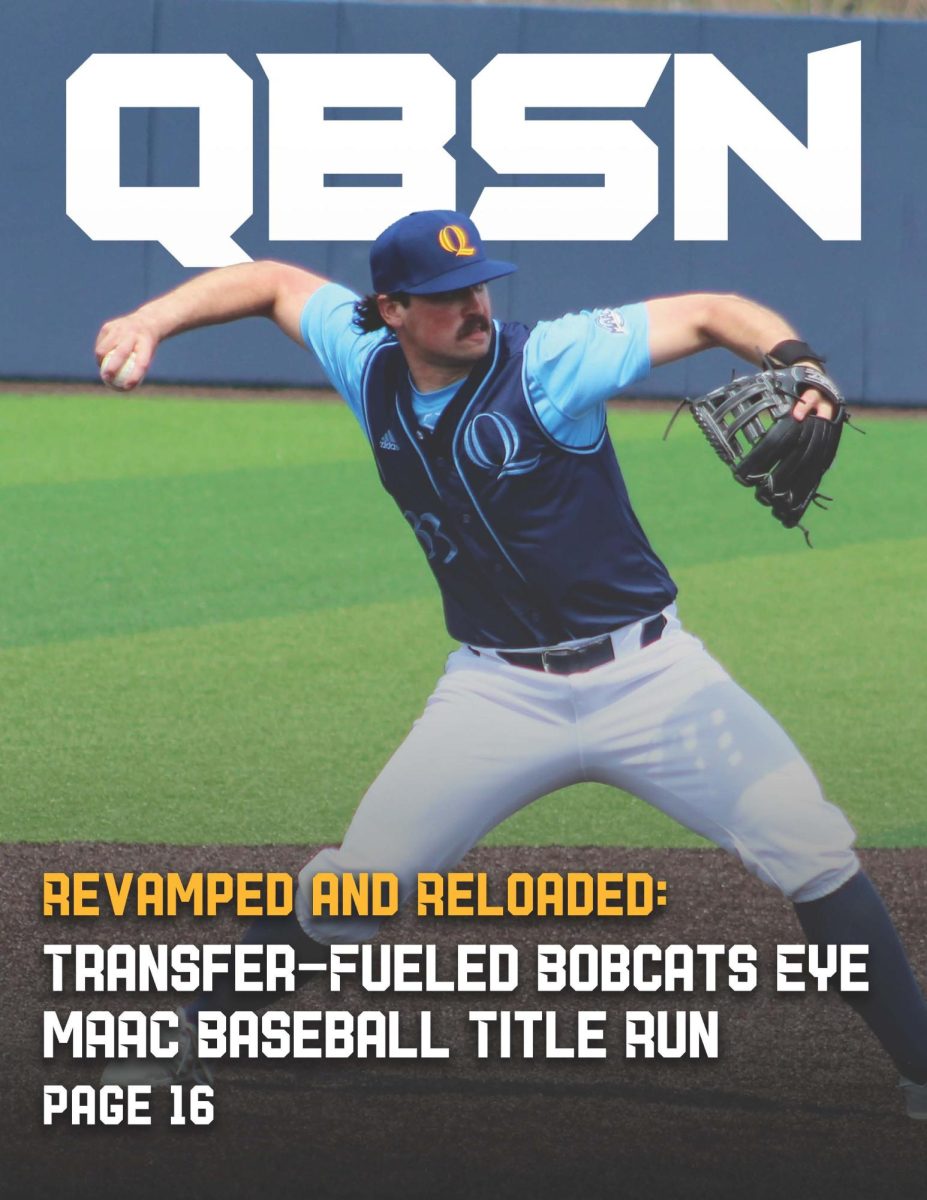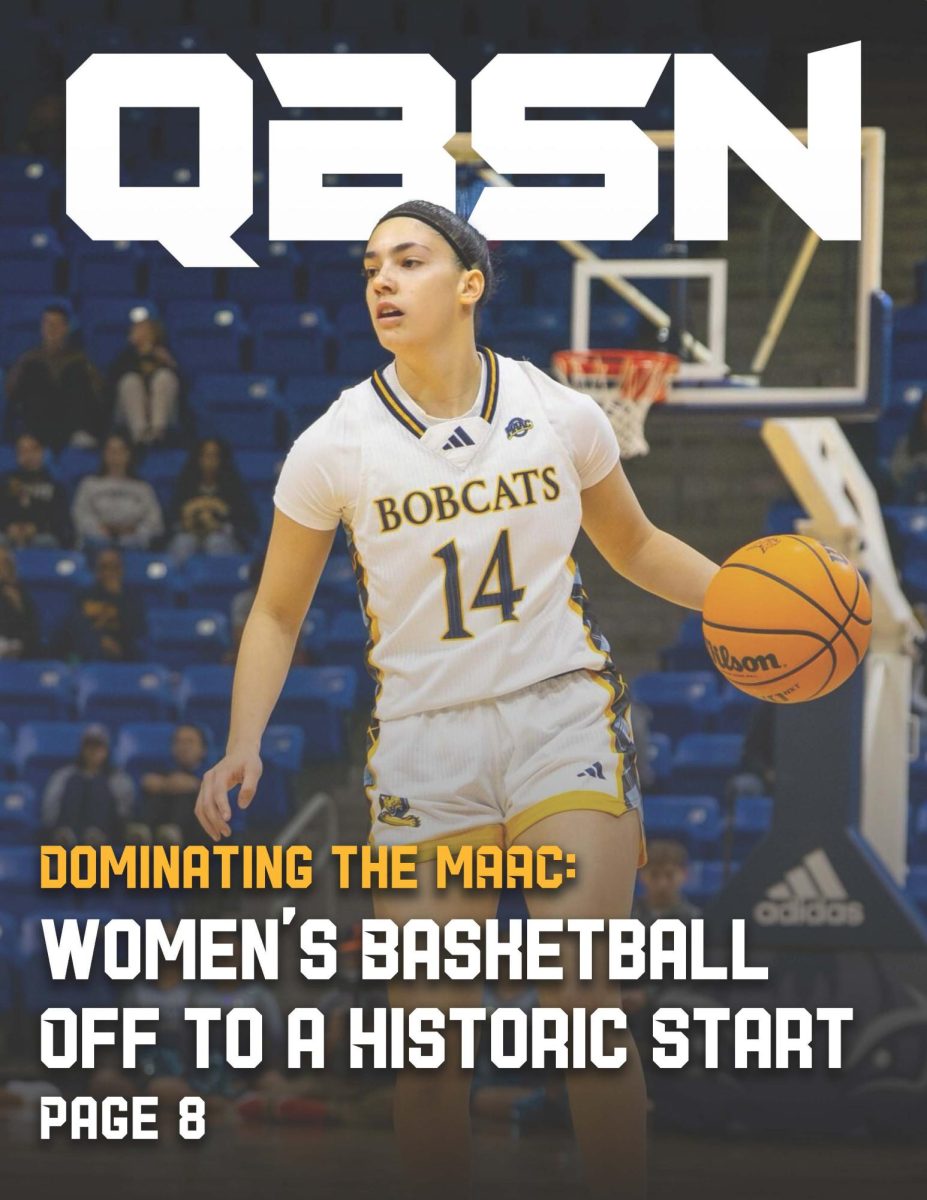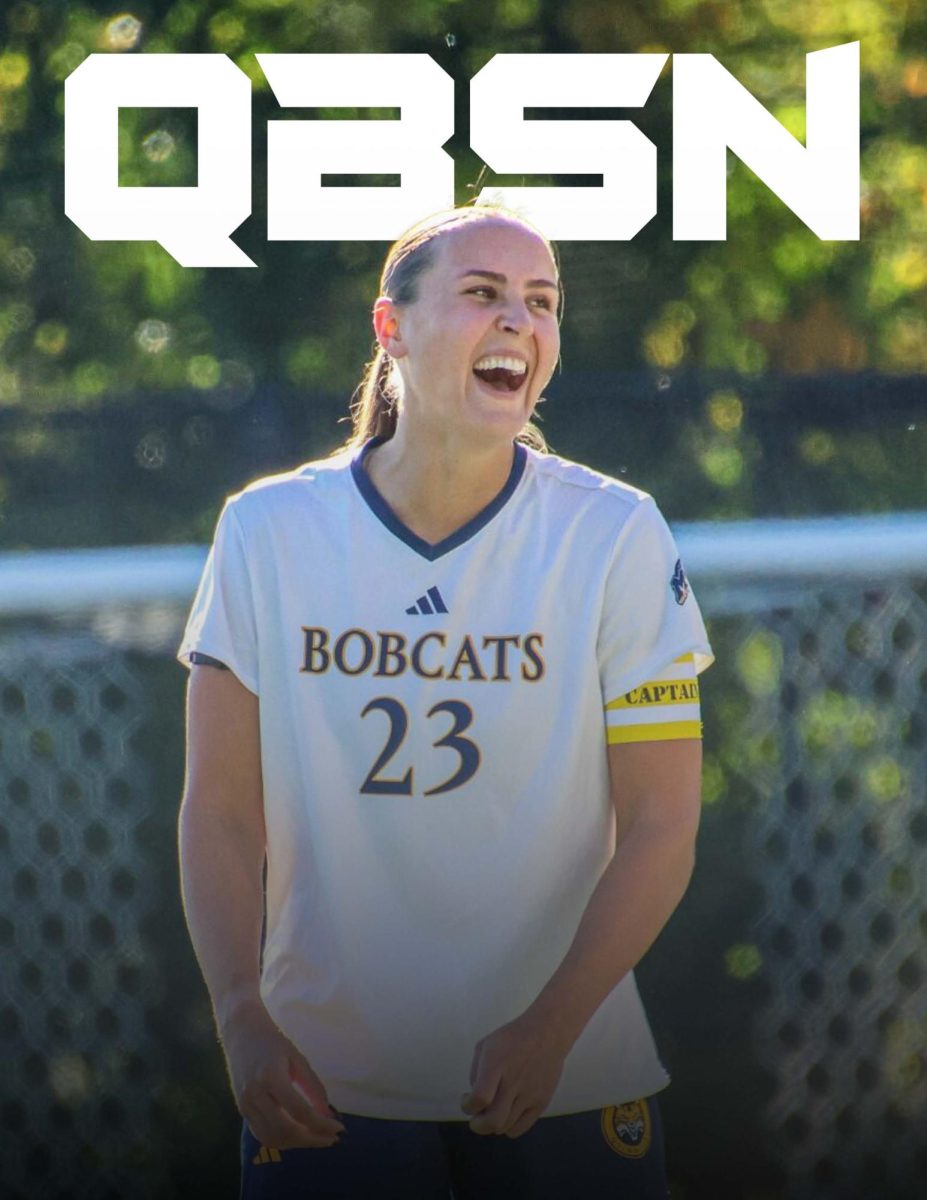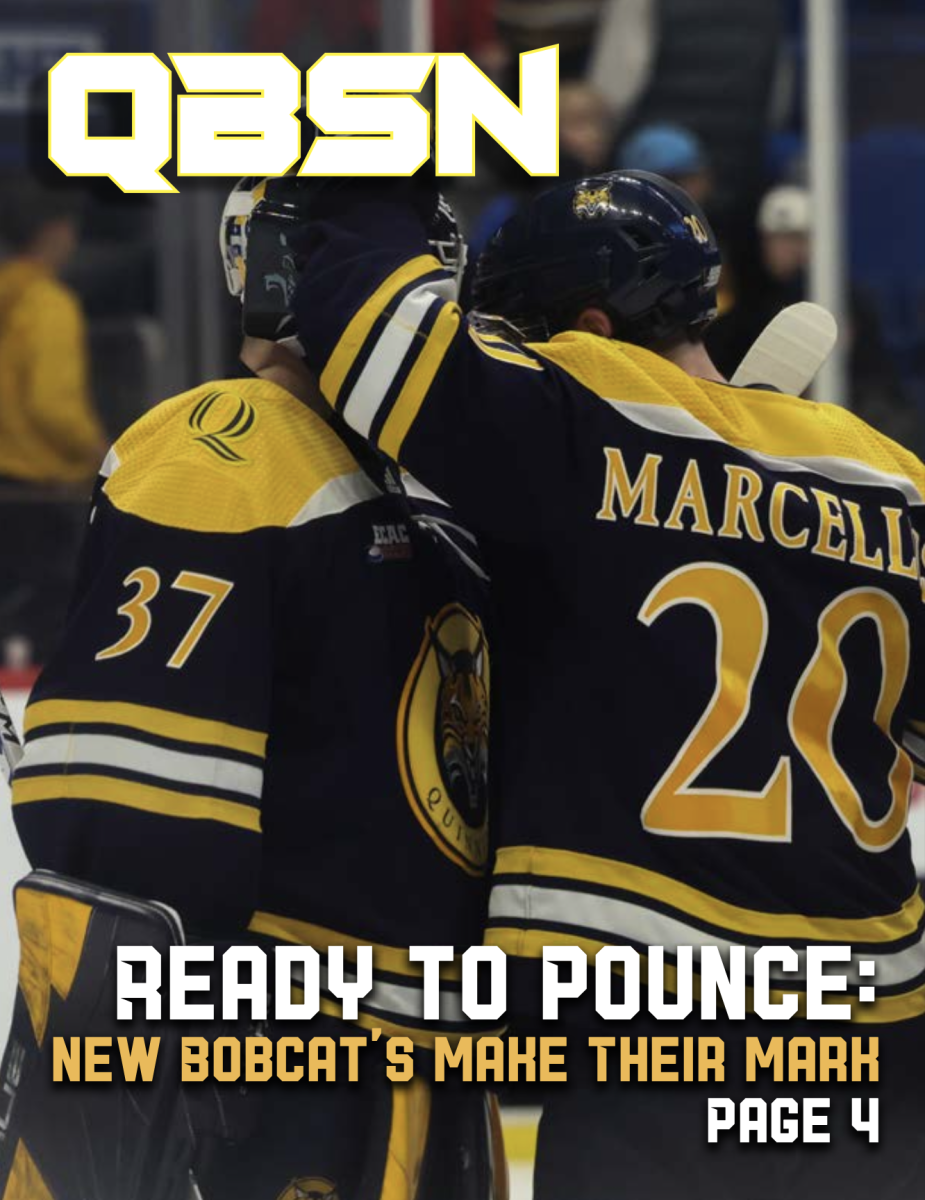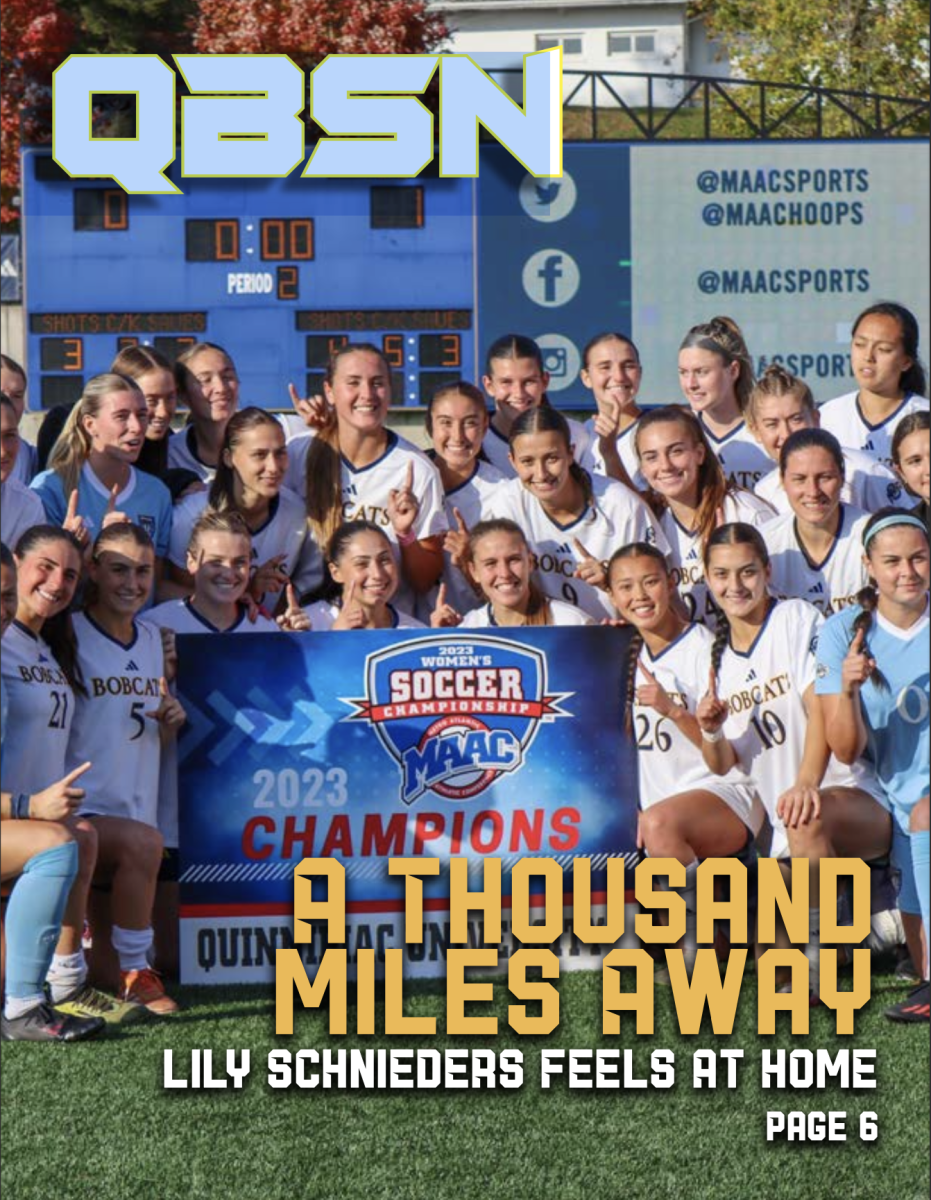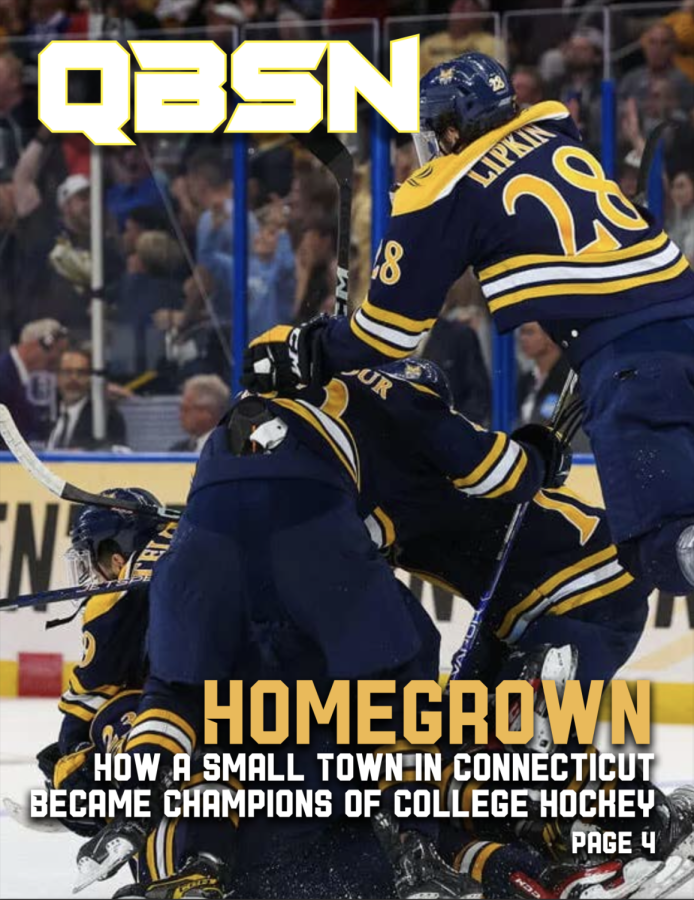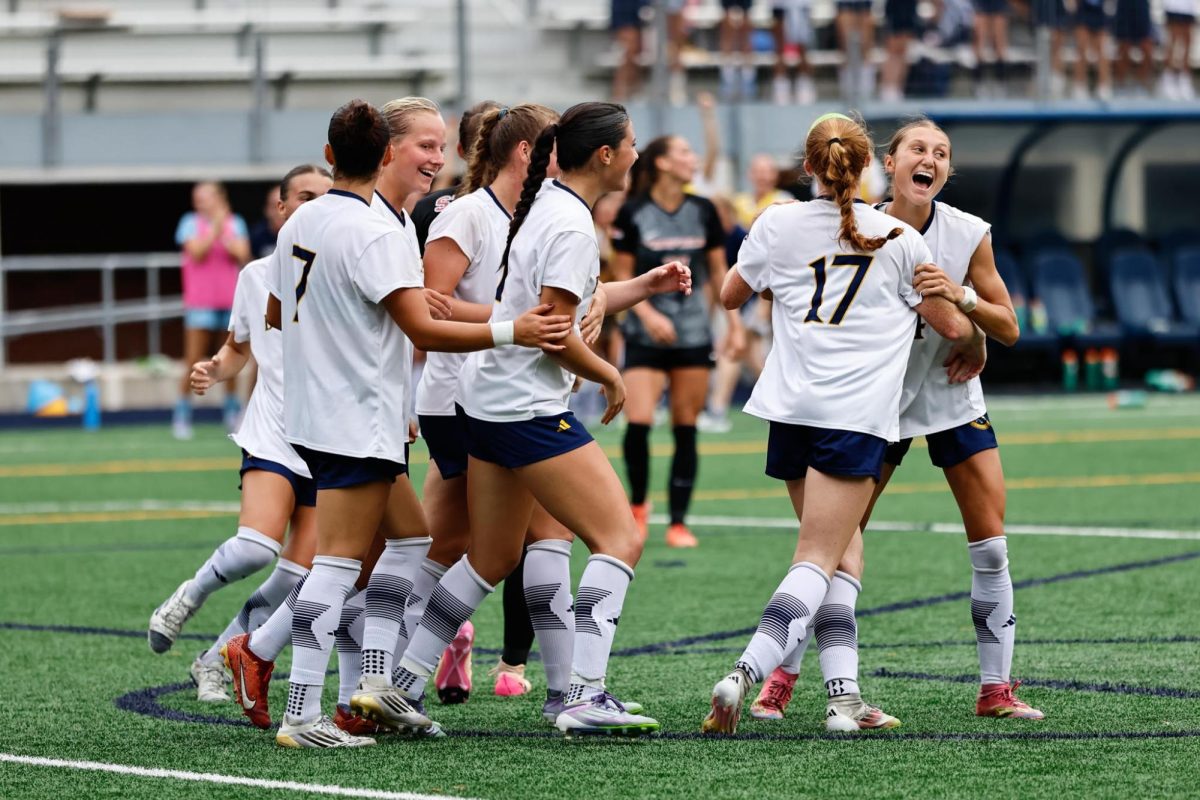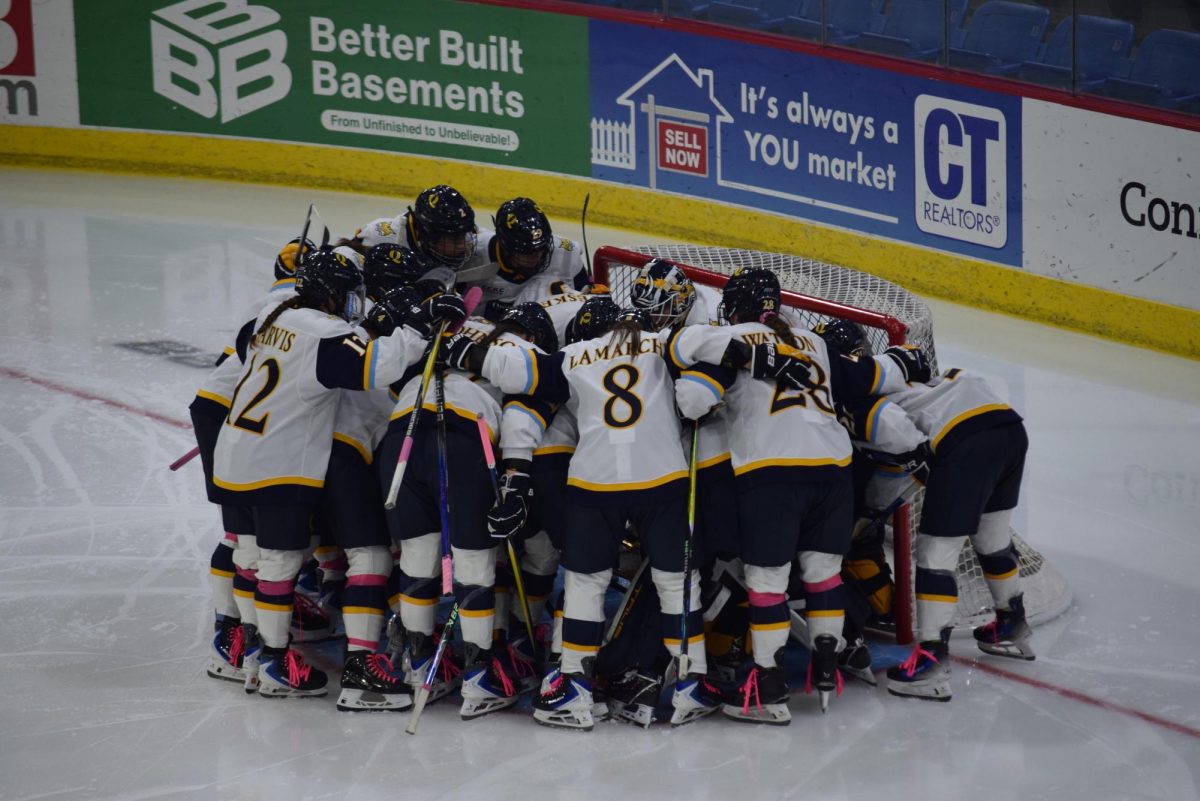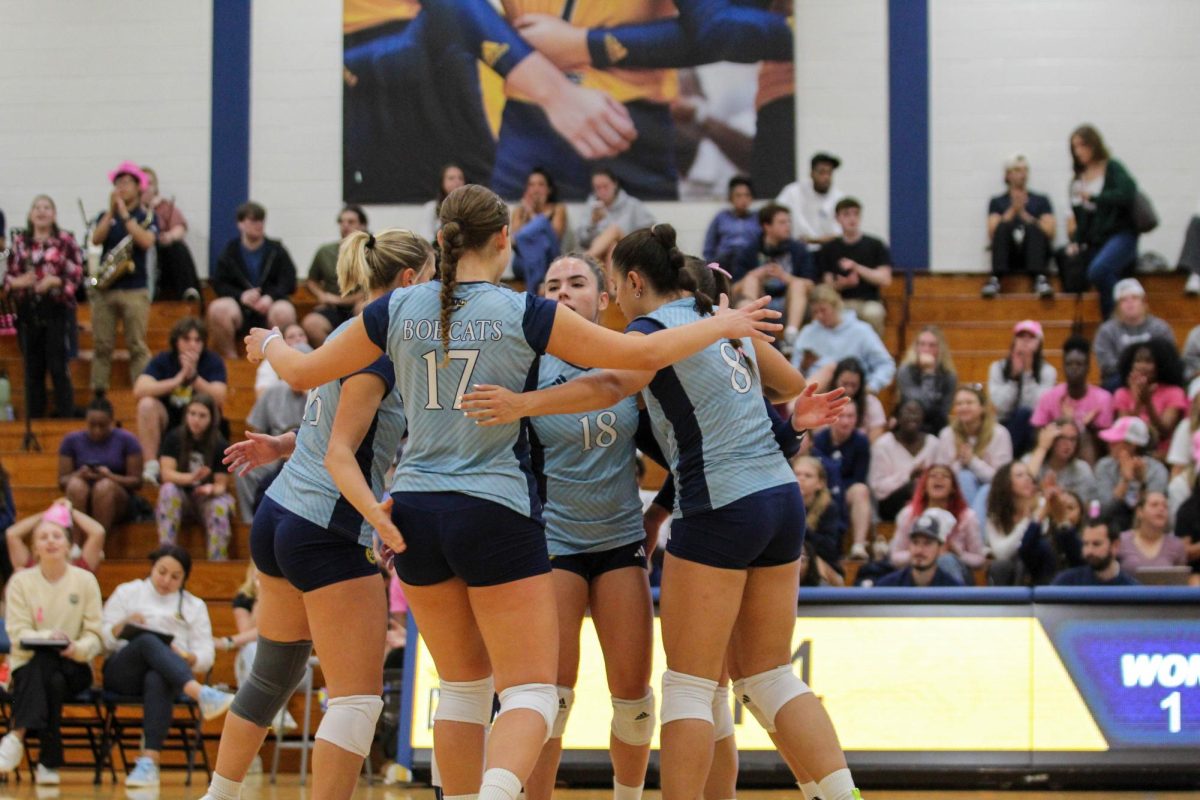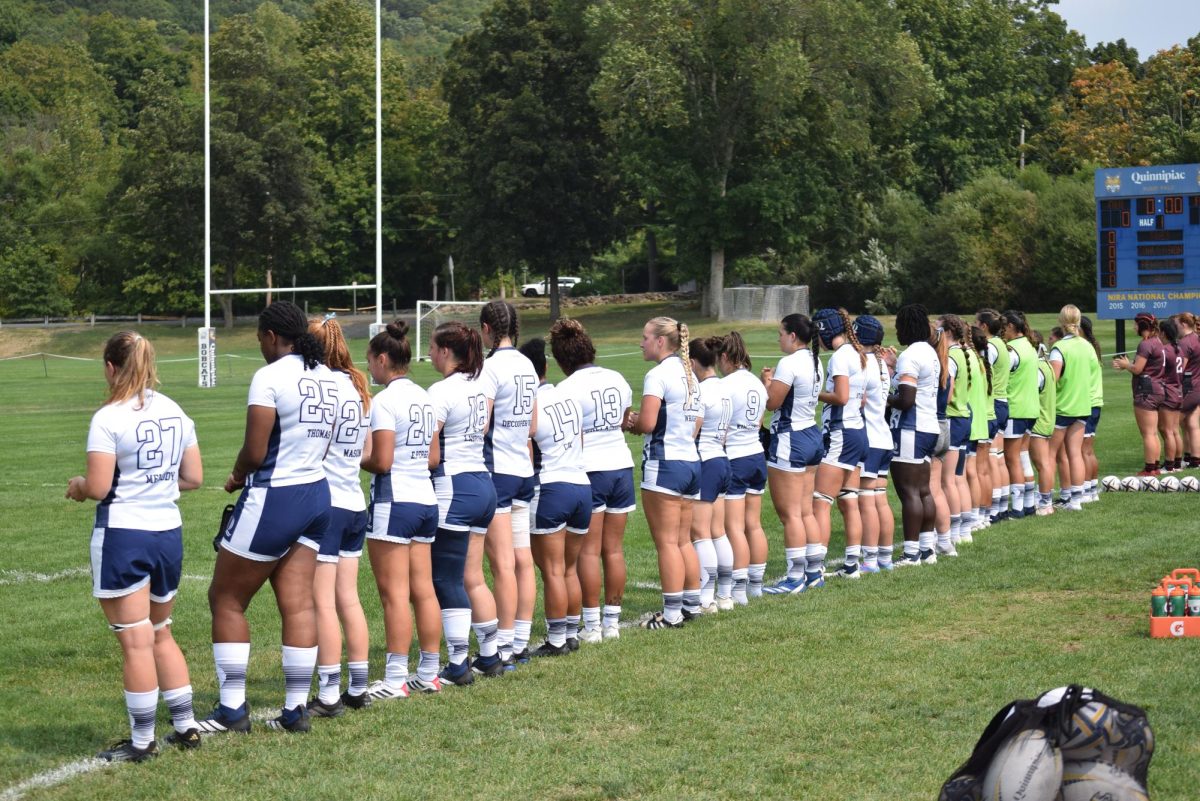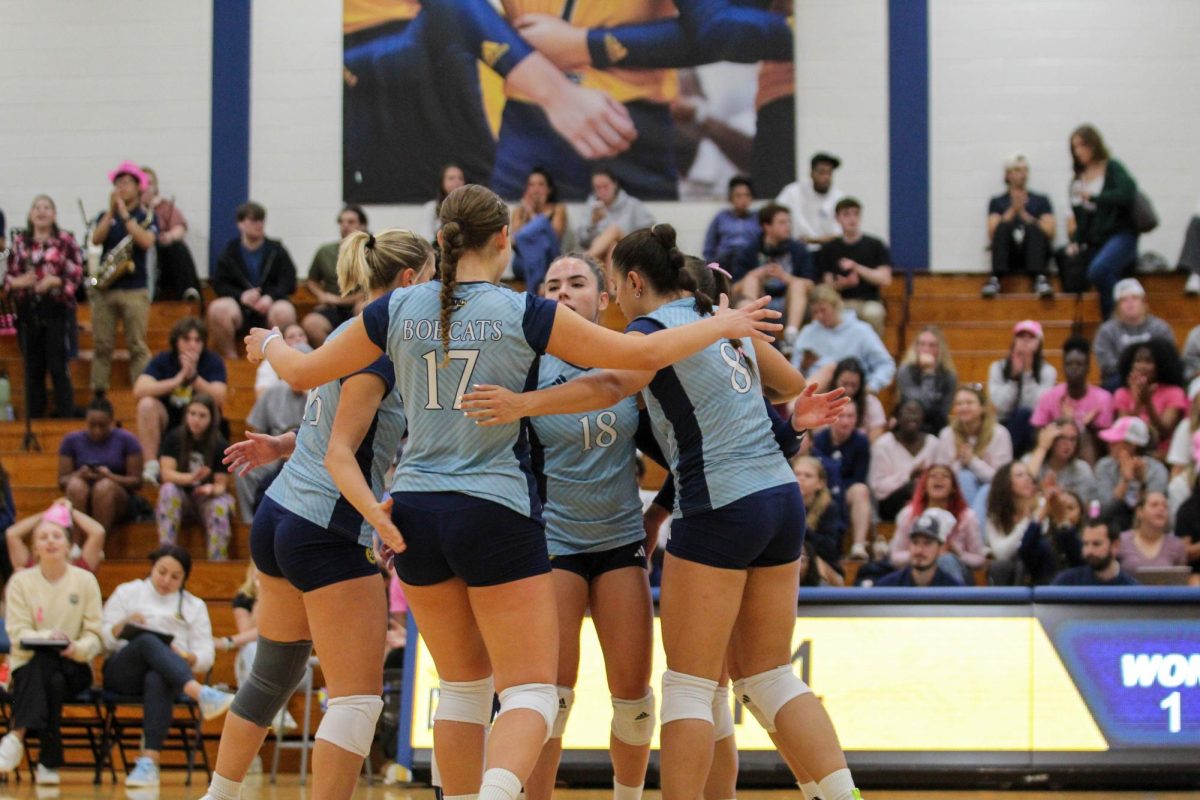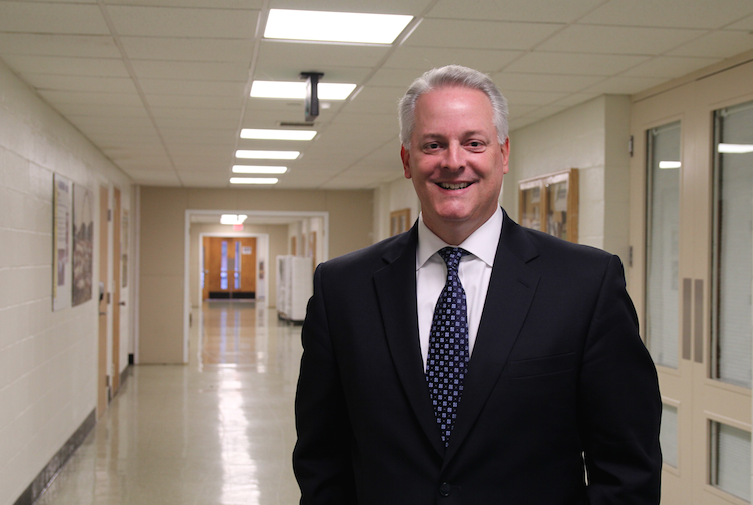
Whether it be directing the marketing scheme as associate director of athletics at Xavier University, or serving as the athletic director at Duquesne University, Greg Amodio has earned his expertise. He now finds himself the new athletic director at Quinnipiac, charged with maintaining and expanding the house that former athletic director Jack McDonald built.
Q: It’s Monday morning. What’s playing on the radio on your way to the office?
A: XM: Backspin. I’m an old school hip hop guy, back from the 80s and 90s—so that’s the No. 1 preset.
Q: Breakfast of choice?
A: You know, it’s usually just a cup of coffee. That’s it.
Q: What is the most beautiful place you have ever been?
A: I was just there. This past summer I had a chance to go to Rome and see the Vatican and just Rome overall. You sit there and you walk through and you look at things and you say to yourself, you know, most of the stuff here is a couple hundred years old, and you go over there and realize stuff is thousands of years old, and it really makes you think about where you’ve been and where you’re from, so I thought that was pretty impactful.
Q: Describe yourself in a few words.
A: Good sense of humor, collaborative and hard-working.
Q: How would you describe your first few months here at Quinnipiac?
A: It’s really been assessment and engagement, trying to get out on campus and trying to meet as many people as possible—the people that you know you’re going to be dealing with but people that you also think you might have or want to have engagements with. Then, back in the community, back with our student athletes, whether it’s faculty or staff, whether it’s alums, donors, people like that, just trying to engage. Then assessment: just trying to see what we do really well, what can we get better at, and what can be changed quickly and positively and then what’s going to take some time to get done.
Q: If you weren’t an athletic director, what would you be doing?
A: I originally came out of college as a physical education major and I was a teacher and coach back on Long Island, and I really thought I’d do that for 30 years. But then once I got into the whole marketing and sales and all that within college athletics, you know the whole corporate sponsorship and the sales and marketing, so I’d probably be doing something in that realm.
Q: Tom Brady: guilty or innocent.
A: Oh, he’s guilty!
Q: Would you ever consider making an appearance inside the Boomer costume?
A: I can’t say that—you’re going to ruin the whole surprise!
Q: What is your proudest achievement in your professional career or personal life?
A: It’s hard not to say the proudest achievement of your personal life is the birth of your children, and to see my children mature over the course of time. My son is in athletic administration at the University of Rhode Island so he’s followed in my footsteps and my daughter is a junior at the University of Dayton, so to see the way they’ve matured and grown up, I couldn’t be more proud.
Q: What are some of your major goals to achieve during your tenure at Quinnipiac?
A: There’s a lot of great pieces in place, but at the same time the charge for me coming in here was to elevate the mindsight and part of that initially is just becoming a little more sophisticated in the way we operate. In talking to [university president] Dr. Lahey throughout the process, being in the NEC and the MAAC, he would like us to think and function more the way an Atlantic 10 or a Big East school might operate, and coming out of the Atlantic 10 after 10 years I think that I can provide that.
Q: In regards to the idea of moving up to a different conference, what would the university need to do to meet the criteria?
A: In regards to any situation, you just have to handle your own business, and that’s to try to win championships. I’ve heard this many times and in many years, administrations win championships. You have to have the administrative support to get things done because it’s a pretty competitive environment in college athletics, and clearly the institution is committed. So if the commitment is there and we have the right people in places with the right assets, ideally we get the right performance outcomes and if we have those solid performance outcomes then people take notice, and there’s always an opportunity to look at future opportunities.
Q: How does Quinnipiac compare or contrast to previous athletic programs that you have been a part of, specifically those at Xavier and Duquesne?
A: You know, what I realized even during the interview process is you quickly get a great sense of family and community here, and that athletics is really important to the overall fiber of the institution. The university wants to use athletics as a specific branding element to let people know what we’re all about as an institution. That is very much in line with my experience at Xavier, so that’s very similar.
Q: In terms of community outreach, do you have any specific plans towards going about expanding the focus?
A: Yeah, we have to do a much better job and I’ve gone out and talked to people. One of the things we’ve talked about are commitments; we have commitments to athletic achievement, academic excellence, Title IX commitments, but another one that’s important is campus and community engagement. We, as a group of 475 student-athletes and then staff, so more towards 550 people, we have a responsibility to be much more proactive on campus, much more engaging. If we want the student-athletes, faculty and staff to really feel like the program belongs to them, then we have to do a better job of implementing ourselves back into the campus community.
Q: There’s been noted discussion about improvements to the facilities on the Mt. Carmel Campus. How do you plan to tackle the topic?
A: I think the biggest element now is on the board of the facilities for men’s and women’s soccer, men’s and women’s lacrosse, and field hockey. The university has been engaged in planning and zoning conversations with the town of Hamden to make those a reality. I’m led to believe that we’re close on getting the approvals for all those types of things. Obviously if we can develop a new facility for those five programs, and collaterally it’s a great benefit to our rugby program as well, it’s a great impactful opportunity on six of our programs to move forward.
Q: What is the most rewarding aspect about being an athletic director?
A: I think the most rewarding [aspect] clearly seeing the impact we have on student-athletes. There’s nothing better than seeing them leave here, ideally with their degree, you get that piece of paper, but have we helped them over the course of four years to make them better people and prepare them for the outside world? Lastly, it’s always great three, five, 10 years down the line to see those people come back on campus and see how successful they’ve been and how they carry themselves as alumni of the university.
Q: Where do you believe that you have improved in your professional career?
A: I think this being the second go around as an athletic director, not that I would sit there and say, ‘Wow I made all of these mistakes in my last stop,’ but it allows you to fine tune who you are and prioritize and make sure you have a full understanding of the needs and wants of your campus community, your student athletes, your coaches, and ideally put them in a better position for positive performance outcomes.
Q: How do you think that you and former AD Jack McDonald differ in management styles?
A: Jack was really terrific with me throughout the process, and we’re still engaged in regards to women’s rugby. He’s still very much at the forefront of that charge so we’re on conference calls from time to time. But you know Jack moved this program from a DII program to a DI program, NEC to the MAAC, I spent 20 years in the Atlantic 10, a “higher-level conference,” so you know Jack did a lot of the heavy lifting, frankly. I’m walking into an absolutely fabulous situation because of him and really what I’m just trying to do is help take it to the next level and build on the good work and foundation that he laid.
Q: Is there one specific sport in need of your immediate attention and why?
A: Yeah, I think one of the things in terms of gaining the positive exposure that you want is I think the external side of things, it’s how we are portraying ourselves: the marketing, the advertising, the corporate sales, the fundraising, all those different types of things I think are critical. As we talked about, we have high profile sports. We’ve got to continue to nurture men’s basketball and continue to have that move forward, you know the worst season we’ve had recently was 15-15, a .500 season. So it’s certainly not broken, but what other little tweaks can we put in in terms of support for the program? Men’s and women’s hockey and women’s basketball all went to the NCAA tournament last year so you know they’re in good shape and we’ll continue to nurture those obviously, but at the same time what can we do with basketball, and again a very competitive landscape to provide them with the assets to be able to at the end of the day, attract the best and brightest student athletes to play basketball and be solid role models here and help us win games which lead to winning championships.
Q: What athletic game(s) are you looking forward to the most?
A: Well I think for me hockey has been tremendously refreshing, you know when I came from Xavier there was no football and no hockey, it was basketball. 24/7 basketball. Then I got to Duquesne and we had football and we went from non-scholarship to scholarship football, we went from playing in the old MAAC to playing in the NEC, and that was a great evolution you know five conference championships in the 10 years I was there so I became a “football guy” and now I’ve migrated out of football and into hockey and grew up a great hockey fan as a kid going to Islanders games growing up on Long Island, and now being around college hockey, it’s just refreshing and something different to be around. Obviously [Rand Pecknold] and [Cassandra Turner] do a great job with their programs so I’m really excited to be apart of the hockey business and seeing where we can take the programs.


